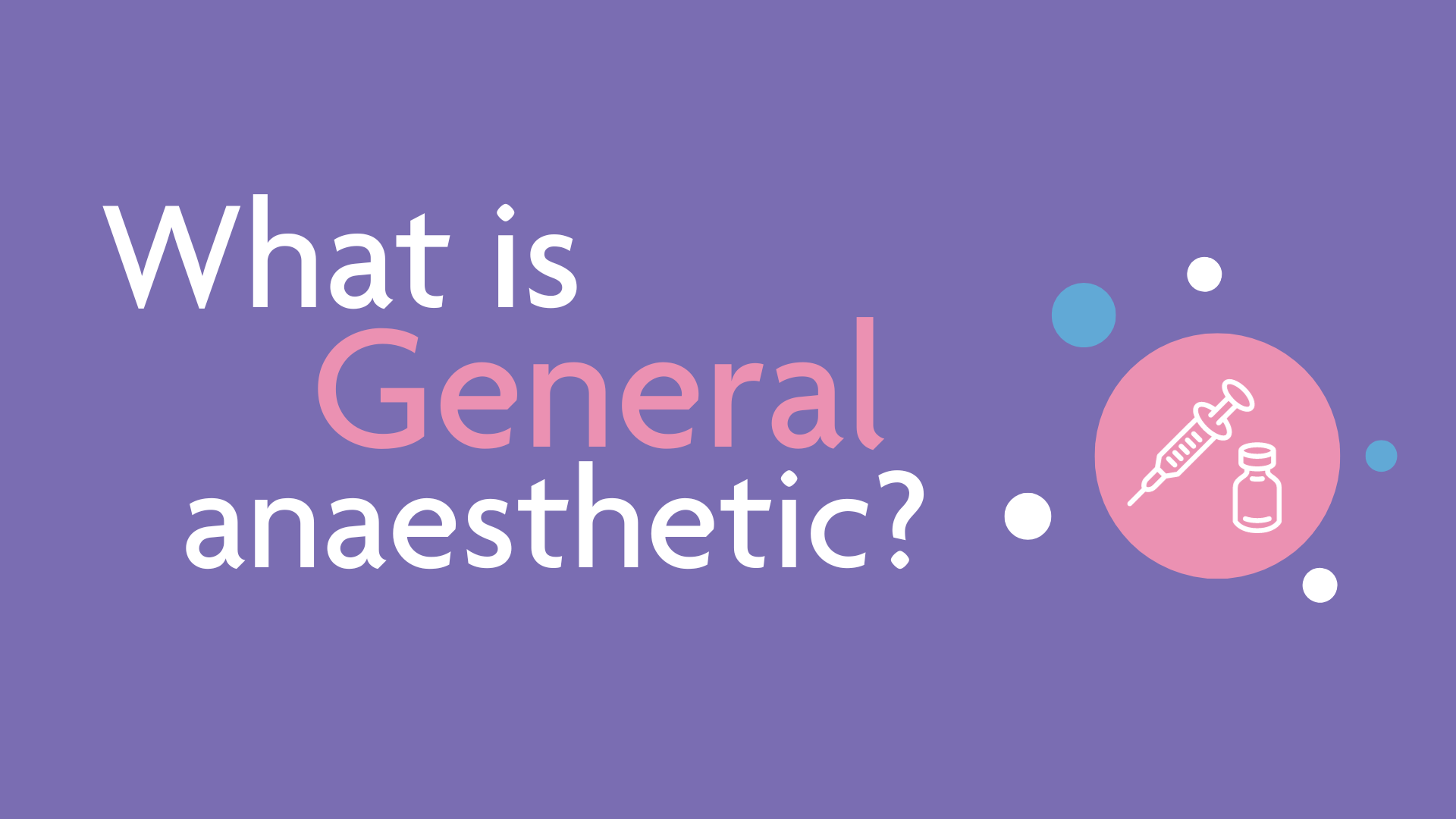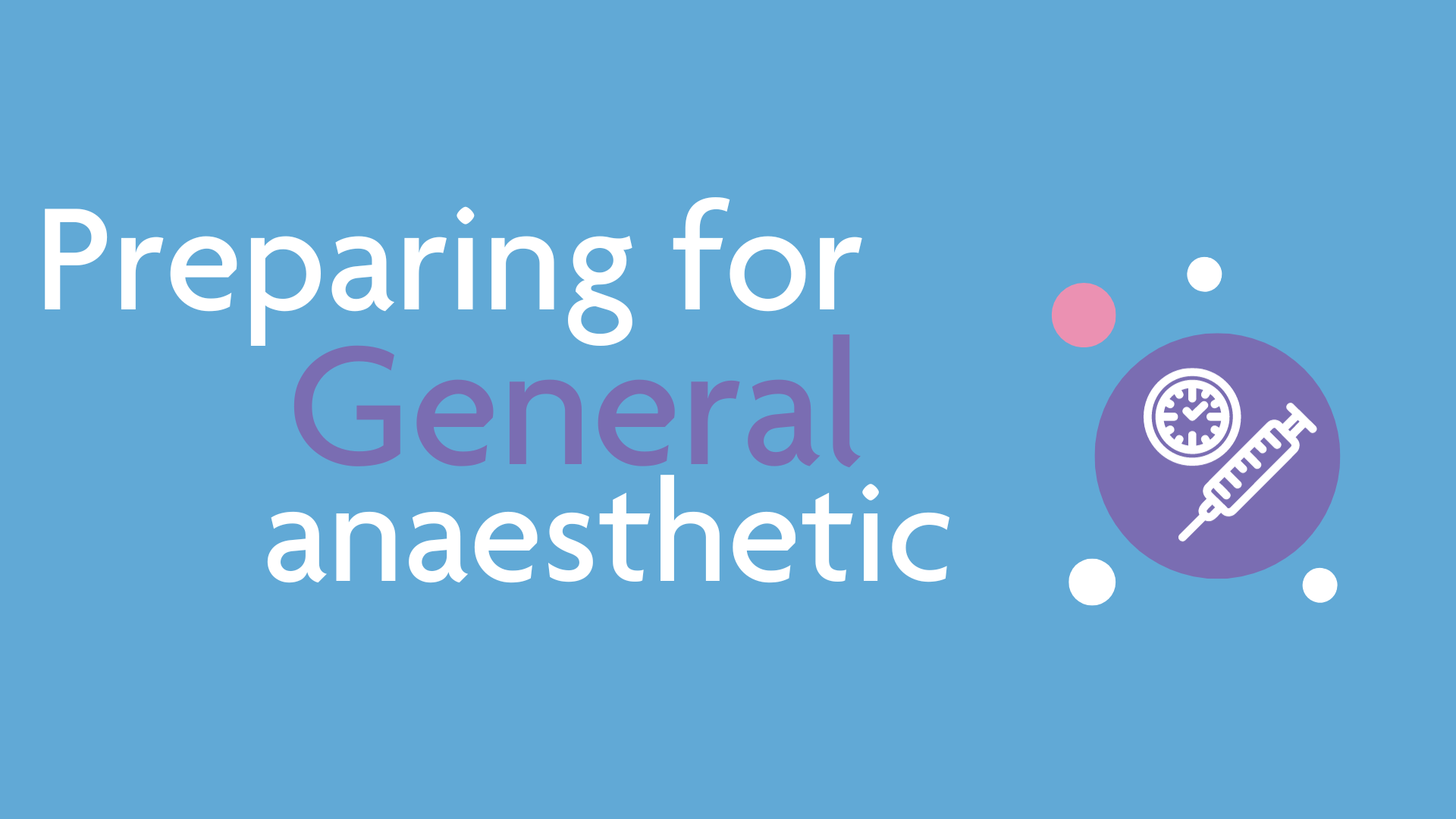
Under a general anaesthetic, you are unconscious and you will feel nothing. This is is like being asleep. General anaesthetic is given by an anaesthetist. An anaesthetist is a doctor with specialist training and is responsible for giving you anaesthetic and caring for you while you are drowsy or asleep. Anaesthetic drugs are injected into a vein, usually in the back of your hand, through a cannula (a very fine plastic tube). The anaesthetist will stay with you throughout your procedure to make sure you are safe and well.
You should plan to be at the clinic for the whole day. At BPAS, your procedure will take between 10 and 15 minutes, after which you will be woken up. Once your treatment is finished the anaesthetic drugs will wear off very quickly.
You will need to fast for several hours before having a general anaesthetic. It is important that you follow the fasting instructions - otherwise you may not be treated on the day of your appointment.
Preparing for your treatment

The most important rule is that you must stop eating and drinking for a period of time before a general anaesthetic.
Do not drink alcohol for 24 hours before your appointment time.
6 hours before your appointment, you must stop eating and you must not suck sweets. You must not have milk, fizzy drinks, or juice with pulp.
6 to 2 hours before your appointment, you can drink sips of clear liquids (only water, black tea and black coffee without sugar or milk), and you can chew gum.
2 hours before your appointment, you must stop drinking sips of clear liquids and stop chewing gum.
If you do not follow these instructions about eating and drinking, it may be unsafe for us to treat you and your procedure may be cancelled, or you may not be able to have the anaesthetic you wanted.
You can eat and drink normally after your treatment.
Any drugs can affect your reaction to the anaesthetic. If you are taking medication, please tell us what you are taking and the last time you took it. If you are taking recreational drugs, please be open and honest with us as they can also affect your anaesthetic. Anything you tell us will be kept in confidence.
You should plan to be at the clinic for the whole day.
You do not need to remove your nail polish or false nails – but you will need to remove all jewellery and decorative piercings (including tongue piercings). If you can’t remove a piercing, then we will cover it with tape to prevent accidental damage to your skin. You should also remove all make-up.
Essential things to bring:
- Your prescribed medicines or inhalers
- Stick-on sanitary towels
- Extra underwear
- Slippers or suitable non-slip footwear
- A nightdress (must be short sleeved with a scoop neck) or a long, baggy t-shirt to wear during treatment, and a dressing gown. Alternatively, you could use one of our cotton operating gowns,
What to expect on the day
You will need someone to take you home after treatment.
Clients can bring one person with them to the clinic. They will be allowed into the waiting area with you but due to the size of some of our clinics they may not be able to stay with you. Please be aware that at some point during your time with us we will want to see you alone.
Once you have checked in with the receptionist, your name and date of birth will be checked and you will be asked to go into a waiting room. A nurse will collect you and ask if you would like your support person to accompany you through this stage. The nurse will make sure that all your paperwork is complete and accurate. Your medical history will be confirmed.
Your nurse will ask you to use the toilet, and then undress and put on a gown or the nightshirt you brought with you. You will then be shown where to store your belongings.
Please ask your nurse or the anaesthetist if you want to keep your soft contact lenses in for short procedures. You can keep your glasses on until the last moment.
False or loose teeth could interfere with the anaesthetist's oral equipment. If you have dentures please discuss this with the anaesthetist.
A female adult of your choice can stay with you throughout your treatment and you need an adult (aged 18 or over) to take you home when it is finished - if this is difficult for you, please tell the clinic at the earliest opportunity so that your treatment can be provided safely.
If you are under the age of 16 a female support person can stay with you if you wish, right up until you go into theatre when you will usually be asleep. You will have a BPAS support person with you throughout your treatment.
As with all our clients, we will also keep your own support person up-to-date with your progress if you wish and you will be reunited with them as quickly as possible.
More information for under 18s.
You will go to sleep or be sedated in the operating theatre and someone will be with you at all times.
After your treatment, you will normally wake up or come around in the recovery area. Our specially trained staff will look after you and when they are happy that you have recovered from your anaesthetic or sedation you will be able to move from the recovery area. We will encourage you to be up and about as soon as possible after the treatment.
After your treatment
You must not drive yourself home after a general anaesthetic. If you intend to drive, the anaesthetist may refuse to treat you. We recommend that you do not drive any vehicle for 24 hours. Driving during that time may mean prosecution under Section 4 of the Road Traffic Act 1988 relating to driving under the influence of drugs.
We strongly recommend that someone accompanies you home and stays with you for 24 hours after your treatment. This should be an adult who can look after you. If you are under 18 years of age, a responsible adult must take you home.
You should not operate machinery for 24 hours after your general anaesthetic.
Please inform us if you need to travel by air following your surgery. Flights of 4 hours or more should be avoided for up to 48 hours after receiving your general anaesthetic
We advise that:
- If you need to fly after general anaesthesia or conscious sedation you should only do so, if you flight begins more than 12 hours after receiving your sedative or anaesthetic.
- You must be accompanied by a responsible adult who can seek medical help should you become unwell
- You should only catch your flight if you feel well and are not experiencing any of these symptoms: dizzy, lightheaded, nausea or vomiting, heavy bleeding, severe abdominal pain
Very low levels of anaesthetic will be present in breast milk after treatment. It is safe to resume breastfeeding as soon as you feel recovered and ready.
Significant, unavoidable, or frequently occurring risks
- Feeling sick and vomiting after surgery
- Sore throat (if we need to help you breathe during surgery)
- Dizziness or blurred vision
- Headache
- Itching
- Aches, pains and backache
- Pain during the injection of the drugs
- Bruising and soreness
- Confusion or memory loss
- Chest infection
- Bladder problems
- Muscle pains
- Slow breathing (depressed respiration)
- Damage to lips, teeth or tongue
- An existing medical condition getting worse
- Awareness (becoming conscious during your treatment)
- Damage to the eyes/serious allergy to drugs
- Nerve damage
- Death*
* Deaths caused by anaesthetic are very rare and are usually caused by several complications happening together.
